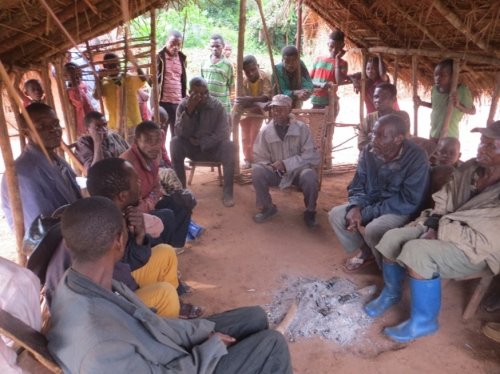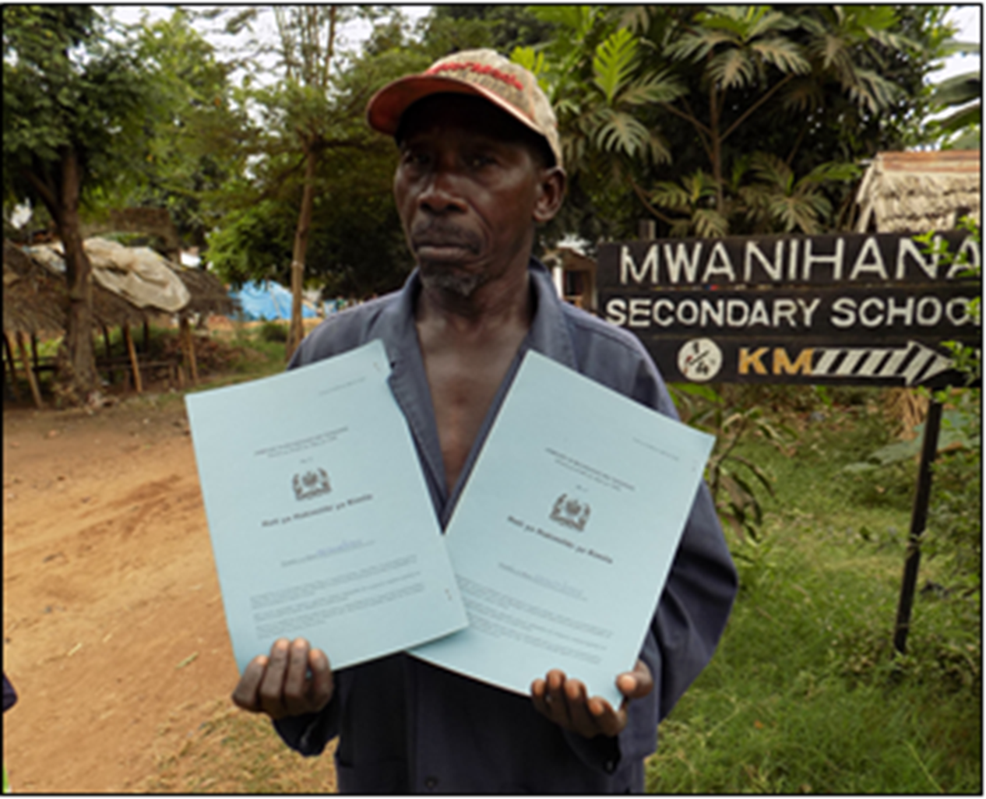Introduction
On October 24, 2017, the Africa Biodiversity Collaborative Group (ABCG) presented the interim results from three pilot studies which examined methods for securing land and resource tenure, in its presentation titled, Piloting New Approaches for Securing Tenure in Three Critical Ecosystems in Africa.
ABCG’s Land and Resource Tenure Rights (LRTR) working group enables more effective conservation by enhancing local land and resource tenure rights. Community land and natural resources represent fundamental assets for rural communities—primary sources of livelihood, nutrition, income, wealth and employment. Land and resources are also a basis for security, status, social identity and political relations. Strengthening rights and securing tenure, especially over the community lands managed as common property, are central to the sustainable management of their land and  resources, including biodiversity. Click here to view the LRTR factsheet.
resources, including biodiversity. Click here to view the LRTR factsheet.
The LRTR working group members presented on methods employed, achievements, and lessons learned from their activities in three pilot sites in the Democratic Republic of the Congo, and Southern and Western Tanzania. Pilot activities explored the co-management of protected areas, and the registration and documentation of common property resources – principally grazing, forests and wildlife– within communal lands.
The meeting commenced with opening remarks by Rebecca Goodman, ABCG’s Coordinator who provided a brief overview of ABCG’s approach and current activities. Deo Kujirakwinja, Kabobo Project Manager at the Wildlife Conservation Society (WCS), then provided progress on pilot activities in the DRC. Peter Veit, Director of Land and Resource Rights Initiative at the World Resources Institute (WRI), presented activities undertaken in Southern Tanzania by WRI and the African Wildlife Foundation (AWF). Matt Morley, Associate Director-Programs and Analysis, Africa Programs at the Jane Goodall Institute (JGI), followed with activities in Western Tanzania undertaken by JGI and The Nature Conservancy (TNC).
Pilot Activities
In Kabobo Wildlife Reserve, DRC WCS focused on gaining formal approval of Kabobo as a protected area through a participatory process involving local communities and stakeholders in decision-making. WCS succeeded in securing the gazettement of Kabobo while also gaining support from local political authorities and communities to employ a co-management model with local communities retaining resource rights and management authority of the Reserve.
AWF, WRI, TNC and JGI explored alternate methods for improving land tenure in Tanzania with Certificates of Customary Rights of Occupancy (CCRO) being selected as the best approach and employed in the field by AWF, TNC, and JGI. CCROs are used to formally allocate parcels of village lands to individuals or groups.
WRI shared its findings of the inefficacy of current land use plans and the benefits of CCROs with senior government officials, members of parliament, and donors with hopes of pushing officials to address the issues affecting Tanzania’s land policy. They also supported the efforts of local NGOs such as the Ujamaa Community Resources Team and the Tanzania Land Alliance in the land policy reform process.
In Southern Tanzania, AWF worked to engage with communities at the village level and sensitize them on the importance
In Western Tanzania, TNC supported district authorities in the Greater Mahale Ecosystem in issuing CCROs and training the institutions that issue CCROs. TNC trained high level district officials, members of the Participatory Land Use Management Team, and local leaders from 10 villages on land use planning and land planning. Furthermore, TNC in collaboration with the National Land Use Planning Commission and Tanganyika District Council prepared land use plans for six villages.
JGI provided support to issuing agencies, village councils and assemblies, village land use management plan teams, and adjudication committees with the intention being the issuing of CCROs. So far, JGI has procured IT equipment to store and issue CCRO documentation. They have also started initial Geographic Information System work and held outreach meetings with villagers focusing on vulnerable households.
Overall recommendations from these activities for improved land tenure:
- Effective management of protected areas requires the support and involvement of local authorities.
- Effective and sustainable land use and land tenure security requires planning, administration and management to be a bottom-up process.
- To ensure tenure security and protect the natural environment, the issuance of CCROs must be promoted.
- The Tanzania land policy must be reformed in order for CCROs to be an effective land tenure method.
Next steps
In ABCG’s future phase III, the LRTR working group will host meetings to increase awareness and understanding of CCROs in local communities, as well as train local institutions on the CCRO issuance process. Findings from field studies will be presented to local authorities with the intention of influencing national land policy. Results and best practices from these activities can then be used to inform future LRTR projects.
ABCG is supported by USAID to advance understanding of critical biodiversity conservation challenges and their solutions in sub-Saharan Africa. ABCG is hosted by the Wildlife Conservation Society, in coalition with the African Wildlife Foundation, Conservation International, the Jane Goodall Institute, The Nature Conservancy, the World Resources Institute, and the World Wildlife Fund.
Resources
Click below to watch the event recording
Click here to view the presentation slides.
Contact
For more information, please contact Peter Veit at peterv@wri.org
Photos
Photo 1 – Women and Batwa people included in the Local Governance Committee. Photo Credit: WCS
Photo 2 – Mr. Ismail Kipalanga of Mkula Village holding his CCROs. Photo Credit: AWF


legitimate online canadian pharmacies
discount prescriptions
canadian pharmacy no rx
compare prescription prices